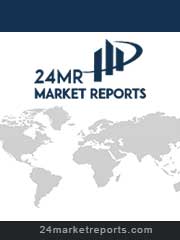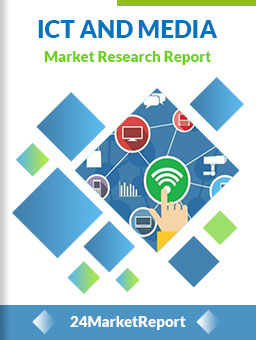
Download FREE Report Sample
Download Free sampleMARKET INSIGHTS
The global Human Resource Outsourcing (HRO) Services market was valued at USD 14.74 billion in 2024 and is projected to grow from USD 15.6 billion in 2025 to USD 21.74 billion by 2032, exhibiting a CAGR of 5.8% during the forecast period.
Human Resource Outsourcing (HRO) refers to the strategic delegation of HR functions to third-party service providers. These services range from specialized offerings like payroll processing and benefits administration to comprehensive HR management solutions. Common HRO models include Professional Employer Organizations (PEOs) and Administrative Service Organizations (ASOs), which cater to different organizational needs.
Market growth is being driven by increasing demand for cost optimization, technological advancements in HR tech platforms, and the complexities of managing global workforces. The rise of remote work models has further accelerated adoption, with businesses seeking expertise in compliance management across multiple jurisdictions. Leading players like ADP and Paychex continue to expand their service portfolios, while emerging providers are introducing innovative AI-driven solutions for talent acquisition and workforce analytics.
Cost Efficiency and Operational Optimization Driving Adoption
The global HRO services market is experiencing significant growth due to the compelling cost benefits offered to enterprises. Organizations can reduce HR operational costs by 30-50% through outsourcing, with payroll processing costs alone decreasing by approximately 25% compared to in-house operations. This financial advantage is particularly crucial for SMEs that lack the scale to justify dedicated HR departments. Automated payroll systems and AI-driven HR platforms are enabling providers to deliver these services at unprecedented efficiency levels - companies utilizing cloud-based HRO solutions report 40% faster payroll processing times. The cost arbitrage between developed and developing markets further enhances these savings, with offshore providers offering premium services at 60-70% of domestic costs.
Global Workforce Complexities Necessitate Specialized Solutions
To know more about market statistics, Download a FREE Sample copy
With 74% of multinational corporations now operating in five or more countries, managing compliance across diverse labor regulations has become prohibitively complex. HRO providers have developed sophisticated capabilities - a single provider today can manage workforce compliance across an average of 82 jurisdictions worldwide. This expertise is critical as employment laws change frequently - for example, European Union countries implemented 147 major labor regulation updates in 2023 alone. Specialized HRO firms maintain dedicated regulatory tracking teams, reducing compliance risks for clients by 65% compared to self-managed approaches. The growing remote work trend adds further complexity, with 58% of organizations now employing workers in three or more countries needing cross-border HR support.
Technology Advancements Expanding Service Capabilities
Next-generation HR technologies are fundamentally transforming service delivery models. AI-powered platforms now handle over 80% of routine HR inquiries with 92% accuracy, while machine learning algorithms predict attrition risks with 85% precision. Cloud-based HRO solutions have seen 120% adoption growth since 2020, enabling real-time workforce analytics previously unavailable to most organizations. Blockchain applications in payroll have reduced processing errors by 40% while cutting international payroll settlement times from days to minutes. These technological advancements allow HRO providers to offer premium services at scale - the average implementation time for comprehensive HRO solutions has decreased from 6-9 months to just 60-90 days in the past five years.
MARKET CHALLENGES
Data Security Concerns Creating Adoption Barriers
Despite the growth potential, 68% of enterprises cite data security as their primary concern when considering HR outsourcing. A single HR data breach can cost organizations an average of $4.45 million, with the healthcare and financial sectors facing even higher risks. Compliance with data protection regulations like GDPR requires significant investment - HRO providers spend approximately 25-30% of their technology budgets on security measures alone. The transition to cloud-based HR systems has expanded vulnerability surfaces - security analysts report a 350% increase in HR system cyber attacks since 2020. These risks create substantial adoption barriers, particularly for organizations handling sensitive employee information in regulated industries.
Other Challenges
Integration Complexities
Merging HRO solutions with existing enterprise systems remains a significant hurdle - 52% of implementations face integration delays due to incompatible legacy platforms. The average enterprise utilizes 11 different HR-related systems, creating complex interoperability challenges that can increase implementation costs by 40% or more. Custom integration requirements are particularly problematic for global organizations needing to accommodate regional payroll and tax systems - a single multinational deployment may require 50+ individual system connections.
Service Quality Concerns
Variability in service delivery quality affects 37% of HRO engagements, particularly in multilingual and multinational contexts. Discrepancies between promised and actual service levels create operational friction - on average, organizations report 2.4 significant service issues per month with their HRO providers. The lack of universal quality standards for HR outsourcing compounds these problems, making objective performance measurement difficult across different providers and regions.
Internal Resistance and Change Management Hurdles
Organizational culture and workforce resistance significantly constrain HRO adoption - 61% of failed implementations stem from internal pushback rather than technical issues. HR departments often view outsourcing as a threat, with 44% of HR professionals resisting initiatives that reduce their direct control. The transition period proves particularly challenging - productivity typically declines by 15-20% during the first six months of outsourcing as employees adapt to new processes. Change management costs add substantially to implementation budgets - for every dollar spent on technology, organizations invest an additional $0.75-$1.25 in workforce transition programs. These cultural factors delay or derail many potential HRO engagements despite their financial and operational benefits.
AI and Analytics Transforming Strategic HR Capabilities
Advanced analytics present a $12.7 billion opportunity in the HRO sector by enabling predictive workforce management. Providers integrating AI-driven talent analytics achieve 30% higher employee retention rates for clients through proactive intervention strategies. The shift from transactional to strategic HR services is accelerating - demand for workforce planning analytics has grown 140% since 2021, with 65% of large enterprises now considering analytics capabilities when selecting HRO partners. Emerging technologies like sentiment analysis and organizational network analysis enable unprecedented insights - early adopters report 25-40% improvements in workforce productivity and engagement metrics. This evolution positions HRO providers as strategic partners rather than just service vendors, creating high-value revenue streams in the consulting and advisory space.
Professional Employer Organizations (PEOs) Segment Dominates Due to Comprehensive HR Management Solutions
The market is segmented based on type into:
Professional employer organizations (PEOs)
Administrative Service Organizations (ASOs)
Payroll outsourcing services
Benefits administration outsourcing
Talent acquisition services
Large Enterprises Lead Market Adoption Due to Complex HR Needs and Scalability Requirements
The market is segmented based on application into:
Large enterprises
SMEs
Startups
Non-profit organizations
Government agencies
Recruitment Process Outsourcing (RPO) Gains Traction for Specialized Talent Acquisition Needs
The market is segmented based on service type into:
Recruitment Process Outsourcing (RPO)
Payroll processing outsourcing
Employee benefits administration
Learning and development services
Workforce management services
IT and Telecommunications Sector Leads in Adoption Due to Dynamic Workforce Requirements
The market is segmented based on industry vertical into:
IT and telecommunications
Healthcare
Banking, Financial Services and Insurance (BFSI)
Manufacturing
Retail
Strategic Partnerships and Technological Advancements Drive Market Competition
The global Human Resource Outsourcing (HRO) services market features a dynamic competitive environment, characterized by a mix of multinational corporations, specialized service providers, and emerging technology-driven startups. ADP (Automatic Data Processing, Inc.) dominates the market with an estimated 18% revenue share in 2024, leveraging its comprehensive suite of payroll, benefits administration, and talent management solutions across 140 countries. The company's recent $1.5 billion acquisition of Celergo strengthened its global payroll capabilities, demonstrating the strategic focus on international expansion.
Paychex and TriNet represent other major players, collectively holding approximately 25% market share. Paychex has shown particular strength in serving small and medium-sized businesses, while TriNet's PEO (Professional Employer Organization) model continues gaining traction among mid-market companies. Their growth reflects broader industry trends where SMEs increasingly outsource HR functions to reduce compliance risks and administrative burdens.
The competitive landscape continues evolving as traditional players face disruption from technology-focused entrants. Workday and Zenefits have captured significant market segments by integrating artificial intelligence and machine learning into HR processes. Workday's people analytics platforms and Zenefits' all-in-one HR software demonstrate how digital transformation reshapes service delivery models across the industry.
Meanwhile, regional specialists like Europe HR Solutions and Peninsula maintain strong positions in their respective markets by offering localized compliance expertise. These companies complement multinational providers by addressing nuanced regulatory requirements that vary significantly across jurisdictions - a critical capability as businesses navigate increasingly complex employment laws worldwide.
ADP (U.S.)
IBM (U.S.)
Paychex (U.S.)
TriNet (U.S.)
Workday (U.S.)
Zenefits (U.S.)
G&A Partners (U.S.)
Europe HR Solutions (Europe)
Peninsula (U.K.)
Avensure (U.K.)
The Human Resource Outsourcing (HRO) market is experiencing significant transformation due to the increasing adoption of digital technologies and artificial intelligence (AI). Companies are leveraging AI-powered platforms for talent acquisition, workforce analytics, and employee engagement strategies. Automation of routine HR tasks such as payroll processing, benefits administration, and compliance management has improved operational efficiency by up to 40% for organizations using these services. Cloud-based HRO solutions are particularly gaining traction, with adoption rates growing at approximately 15% annually. This shift enables real-time data accessibility and seamless integration with existing enterprise systems across global operations.
Rise of Specialized Niche Services
The market is witnessing growing demand for specialized HRO services tailored to specific industry needs such as healthcare, IT, and manufacturing. Recent data indicates that industry-specific HRO solutions now represent nearly 35% of total market demand. This specialization allows providers to offer deeper regulatory compliance expertise and customized workforce management approaches. For example, healthcare HRO providers now offer unique solutions for credentialing management and clinical staff scheduling that differ substantially from services designed for the technology sector.
Post-pandemic workforce expectations have elevated the importance of employee experience in HRO service offerings. Leading providers are incorporating comprehensive well-being programs, mental health support, and career development tools into their service portfolios. Studies show organizations using these enhanced HRO services report 25% higher employee retention rates compared to traditional HR models. The integration of predictive analytics allows for proactive identification of workforce trends and potential retention risks, creating more strategic value for client organizations. Furthermore, this focus on holistic employee support is driving innovation in benefits administration, with personalized packages becoming the new standard in high-value HRO contracts.
As businesses continue to expand internationally, HRO providers are developing sophisticated solutions to manage complex global workforce challenges. The need to navigate differing labor laws, tax regulations, and cultural expectations across multiple jurisdictions has become a critical driver for HRO adoption. Recent market analysis shows multinational corporations now account for over 45% of total HRO service demand. Providers are responding by building extensive networks of local experts and developing centralized platforms that can manage compliance across 50+ countries simultaneously. This trend is particularly evident in emerging markets where regulatory environments are rapidly evolving, creating both opportunities and challenges for HRO service providers.
North America
The North American HRO market, led by the U.S. and Canada, remains the most mature and technologically advanced, accounting for approximately 42% of global market share in 2024. This dominance stems from high adoption rates among large enterprises seeking PEO (Professional Employer Organization) solutions to navigate complex labor laws such as the Affordable Care Act (ACA) and state-level employment regulations. MSP (Managed Services Provider) models are particularly popular, with 68% of Fortune 500 companies outsourcing at least one HR function. The region also shows strong demand for integrated HR tech platforms combining payroll, benefits administration, and talent management. However, data privacy concerns under regulations like California's CCPA are prompting service providers to invest heavily in cybersecurity measures. A notable trend is the shift toward AI-driven HR analytics, with major players like ADP and Paychex offering predictive workforce planning tools.
Europe
Europe's HRO market is characterized by highly localized service models due to divergent labor laws across EU member states. Germany, France, and the UK collectively contribute over 60% of regional revenue, with heightened demand for ASO (Administrative Services Organization) solutions post-Brexit to manage cross-border employment complexities. Stringent GDPR compliance requirements have made data-protection-focused HR outsourcing essential, particularly for multinational corporations. The Nordic countries show the highest adoption of blended HR models, combining in-house specialists with outsourced transactional services. A recent surge in Eastern European nearshoring hubs (e.g., Poland, Romania) has created opportunities for multi-country payroll outsourcing providers. However, resistance from labor unions and stringent worker consultation laws in countries like France sometimes slow adoption rates compared to North America.
Asia-Pacific
As the fastest-growing HRO market (projected 8.3% CAGR 2024-2032), Asia-Pacific exhibits two distinct adoption patterns: sophisticated HRO ecosystems in developed markets (Japan, Australia) versus emerging transactional outsourcing in developing economies. China's market is transforming rapidly, with local players like CDP Group gaining traction through all-in-one HR cloud platforms tailored for manufacturing and tech sectors. India's HRO growth is driven by both domestic SME demand and multinationals leveraging the country's HR-BPO capabilities for global delivery. Cultural factors influence service adoption - Japanese firms prefer gradual, partial outsourcing of recruitment process outsourcing (RPO), while Australian organizations show higher appetite for end-to-end HRO. A significant challenge remains talent quality inconsistency in lower-cost Southeast Asian markets, prompting clients to implement stringent SLA metrics.
South America
The South American HRO market remains relatively underpenetrated (just 9% of global share) but shows strong growth potential in Brazil and Argentina. Economic instability ironically drives demand as companies seek cost containment through outsourcing payroll and benefits administration amidst hyperinflationary pressures in some countries. Brazil's complex labor legislation (CLT) creates specialized demand for local compliance expertise, with providers like TOTVS offering integrated HR-legal solutions. The region exhibits a preference for hybrid HR models rather than full outsourcing, particularly in Chile and Colombia where in-house HR departments maintain strategic functions. However, unreliable internet infrastructure in remote areas limits cloud-based HRO adoption, while currency fluctuation risks deter long-term contracts with international providers.
Middle East & Africa
This emerging HRO market is bifurcating between the GCC's high-value professional services and Africa's transactional HR outsourcing. The UAE and Saudi Arabia dominate regional revenue, with nationalization policies (like Nitaqat) compelling companies to outsource Emiratization/KSA compliance management. Africa shows uneven adoption - South Africa's mature market features sophisticated HRO solutions comparable to European models, while East African nations primarily outsource basic payroll processing. A growing trend is pan-African HRO platforms (e.g., Workable's expansion into Nigeria) serving multinationals across multiple countries. Political instability in parts of North Africa and limited HR tech infrastructure outside major cities remain persistent challenges, though mobile-based HR solutions are gaining traction in Kenya and Ghana.
This market research report offers a holistic overview of global and regional markets for the forecast period 2025–2032. It presents accurate and actionable insights based on a blend of primary and secondary research.
✅ Market Overview
Global and regional market size (historical & forecast)
Growth trends and value/volume projections
✅ Segmentation Analysis
By product type or category
By application or usage area
By end-user industry
By distribution channel (if applicable)
✅ Regional Insights
North America, Europe, Asia-Pacific, Latin America, Middle East & Africa
Country-level data for key markets
✅ Competitive Landscape
Company profiles and market share analysis
Key strategies: M&A, partnerships, expansions
Product portfolio and pricing strategies
✅ Technology & Innovation
Emerging technologies and R&D trends
Automation, digitalization, sustainability initiatives
Impact of AI, IoT, or other disruptors (where applicable)
✅ Market Dynamics
Key drivers supporting market growth
Restraints and potential risk factors
Supply chain trends and challenges
✅ Opportunities & Recommendations
High-growth segments
Investment hotspots
Strategic suggestions for stakeholders
✅ Stakeholder Insights
Target audience includes manufacturers, suppliers, distributors, investors, regulators, and policymakers
-> Key players include ADP, IBM, Paychex, Insperity, TriNet, Workday, and Zenefits, among others.
-> Key growth drivers include cost optimization needs, focus on core business functions, globalization of workforces, and increasing regulatory complexity.
-> North America currently holds the largest market share, while Asia-Pacific is expected to grow at the highest CAGR of 7.2% during the forecast period.
-> Emerging trends include AI-powered HR solutions, cloud-based HRO platforms, integration of analytics, and personalized employee experience solutions.

Speak to our Custom Research Team and get the Custom Research in a budget
Custom ResearchFrequently Asked Questions ?
A license granted to one user. Rules or conditions might be applied for e.g. the use of electric files (PDFs) or printings, depending on product.
A license granted to multiple users.
A license granted to a single business site/establishment.
A license granted to all employees within organisation access to the product.
Upto Working 24 to 48 hrs
Upto 72 hrs max - Weekends and Public Holidays
Online Payments with PayPal and CCavenue
Wire Transfer/Bank Transfer
Hard Copy




 Industry Market Size
Industry Market Size SWOT Analysis
SWOT Analysis Industry Major Players
Industry Major Players Revenue Forecasts
Revenue Forecasts Historical and Forecast Growth
Historical and Forecast Growth Profitability Analysis
Profitability Analysis
























